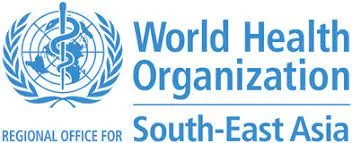
Next week, Health Ministers and senior officials from Member countries will convene to address crucial health priorities and select the next World Health Organization Regional Director for South-East Asia.
The Seventy-sixth Session of the WHO Regional Committee for South-East Asia, an annual governing body meeting at the regional level, is scheduled from October 30 to November 2, 2023.
In attendance will be WHO Director-General Dr. Tedros Adhanom Ghebreyesus and WHO South-East Asia Regional Director Dr. Poonam Khetrapal Singh.
Key topics on the agenda include expediting the prevention and control of cardiovascular diseases, eradicating neglected tropical diseases, and fortifying regional health security.
A ministerial roundtable will focus on bolstering primary health care as a cornerstone toward achieving universal health coverage.
On Wednesday, the Regional Committee will vote to nominate the next WHO Regional Director for South-East Asia. The contenders are Bangladesh nominee Ms. Saima Wazed and Nepal nominee Dr. Shambhu Prasad Acharya. The nomination will then be submitted to the WHO Executive Board, taking place from January 22 to 27, 2024 in Geneva, Switzerland. The newly appointed Regional Director is set to assume office on February 1, 2024, for a five-year term.
During the Regional Committee session, countries will be recognized for their achievements in public health, many of which were driven by a targeted approach to regional flagship priorities.
Home to over 2 billion people, the Region has made significant strides in advancing the Regional Flagship programs. Since 2014, the Region has successfully eliminated polio and maternal and neonatal tetanus. Additionally, four countries – Bhutan, Maldives, Sri Lanka, and Timor-Leste – have eradicated measles and rubella, one of the eight flagship priorities.
With a focus on eradicating neglected tropical diseases, four countries – Maldives, Sri Lanka, Thailand, and Bangladesh – have eliminated lymphatic filariasis. Nepal and Myanmar have achieved the elimination of trachoma, while India has been declared yaws-free.
Sri Lanka and Maldives have successfully eliminated malaria. Meanwhile, Thailand, Maldives, and Sri Lanka have eradicated mother-to-child transmission of syphilis and HIV. Bangladesh, Bhutan, Nepal, and Thailand have achieved control over hepatitis B.
Prioritizing the reduction of maternal, neonatal, and under-5 mortality rates, the Region has seen a 68.5% reduction in maternal mortality between 2000 and 2020. Additionally, there has been a 45% reduction in under-5 mortality and a 39% reduction in neonatal mortality during the same period. Five countries – DPR Korea, Indonesia, Maldives, Sri Lanka, and Thailand – have met the 2030 SDG targets for reducing under-5 and neonatal mortality.
The Region experienced the most rapid decline in tobacco use between 2000 and 2020, with smoking rates among men dropping from 50% to 20%, and among women from 8.9% to 1.6%. Countries in the Region have been at the forefront of implementing graphic warnings on tobacco products.
Given its susceptibility to health emergencies, the Region has been dedicated to strengthening preparedness and response capabilities since the 2004 Indian Ocean tsunami, which affected multiple countries and resulted in over 200,000 casualties. Strengthening health emergency capacities has been a regional priority since 2014. Countries have been enhancing core capacities outlined in the International Health Regulation (2005). Lessons learned from the COVID-19 pandemic are now guiding the Regional Strategy Roadmap on Health Security and Health System Resilience for Emergencies 2023-2027.
The Region is intensifying efforts to control cardiovascular diseases, with a goal to implement protocol-based management for 100 million people with hypertension and/or diabetes by 2025.
In their commitment to advancing universal health coverage, with a particular focus on human resources for health and essential medicines, the availability of doctors, nurses, and midwives has increased by over 30.6% since 2014. Countries in the Region have undertaken various initiatives to transform universal health coverage from an aspiration into a reality.










